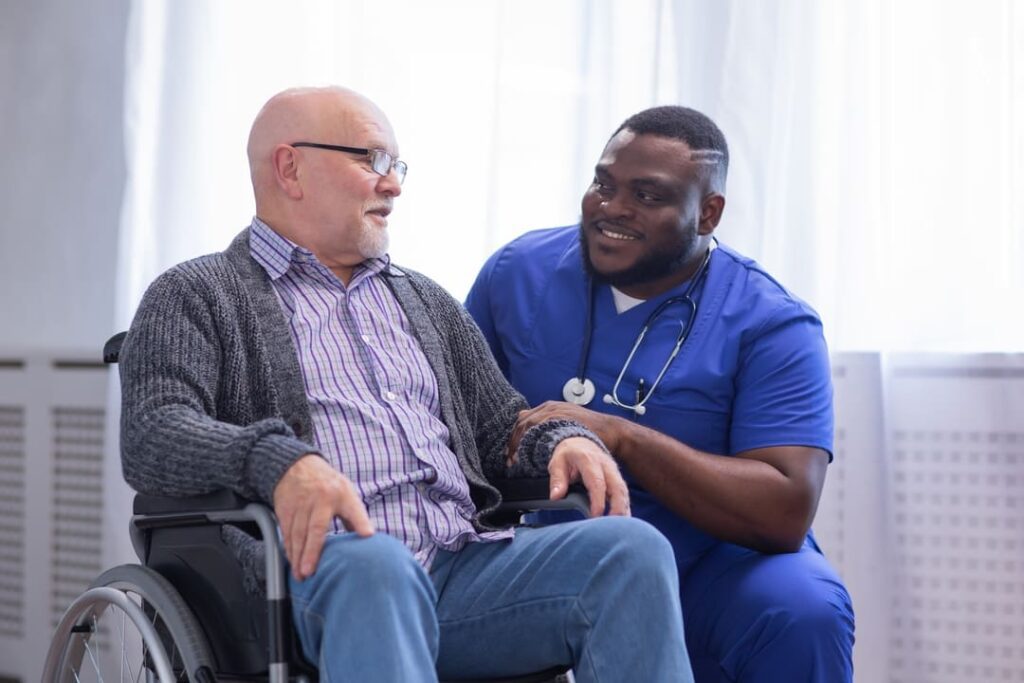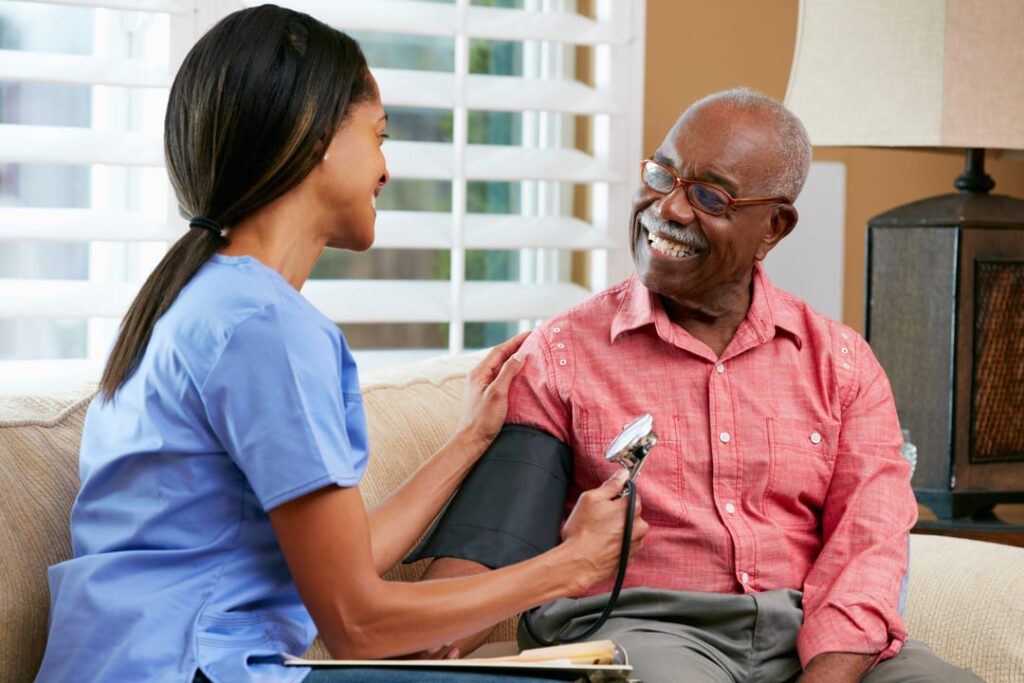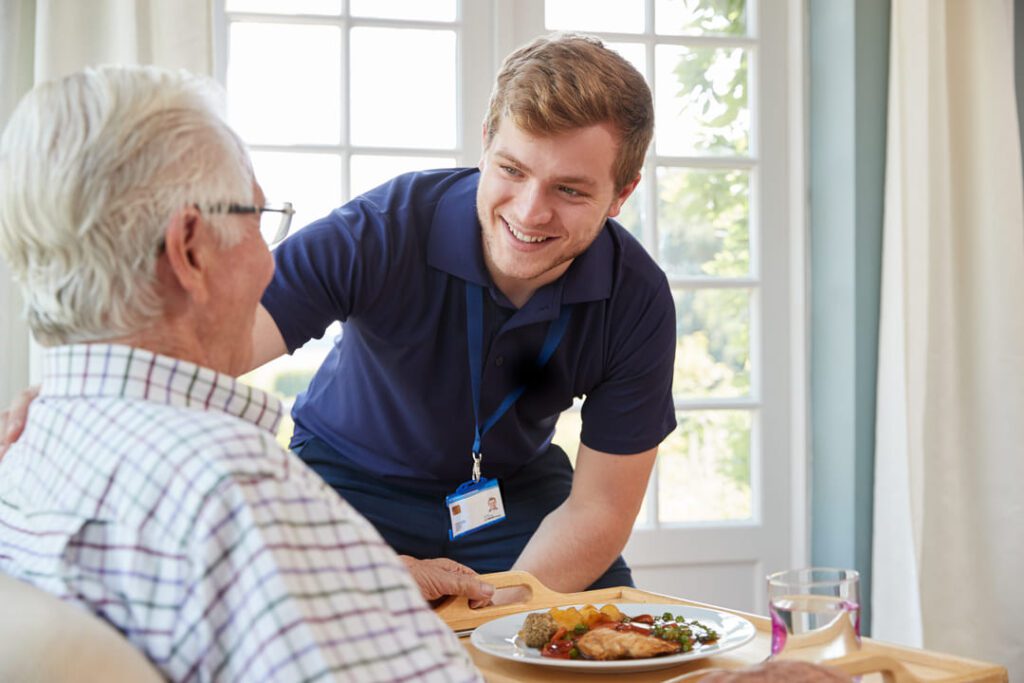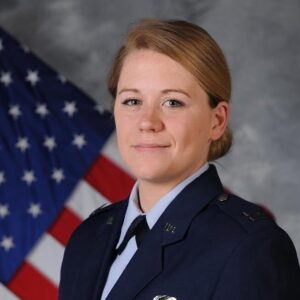Looking for Expert-Level VA Claim Answers?📱Call Us Now! 737-295-2226
Did you know that May is the Month of the Military Caregiver? Established in 2017, this month-long awareness campaign was created to shine a light on the critical role more than five million military caregivers play in supporting our veterans and military families.
Military caregivers are the unsung heroes who provide long-term care and support to our veterans and military families. They’re often behind the scenes juggling multiple roles, including caregiver, provider, and advocate.
In honor of the Month of the Military Caregiver, we want to take a moment to celebrate and thank military caregivers. Let’s dive into who military caregivers are, what they do for their loved ones, and what resources are available to help during challenging periods in the lives of veterans and service members.

You DESERVE a HIGHER VA rating.
Take advantage of a VA Claim Discovery Call with an experienced Team Member. Learn what you’ve been missing so you can FINALLY get the disability rating and compensation you’ve earned for your service.
Who is a military caregiver?
Military caregivers are the people who provide long-term care and support to service members and veterans who have physical or emotional injuries or illnesses. The military caregiver is a vital yet often overlooked member of the military family.
Anyone can be a military caregiver! Caregivers can be spouses, parents, children, siblings, other relatives, neighbors, coworkers, or friends of veterans.
Caregivers provide a wide range of support to loved ones. They may help with basic activities of daily living like bathing, dressing, and eating. They may also provide transportation to medical appointments, manage medications, and provide emotional support.
In addition to physical and emotional care, military caregivers also play a vital role in advocating for their loved ones. They may work with doctors and other health care providers to ensure that their loved ones receive the best possible care. They may also connect their loved ones with community resources and support groups.
Military caregivers can be officially recognized by the VA as caregivers, or they may care for veterans in an informal role.
What is the Month of the Military Caregiver?
The Month of the Military Caregiver is an annual awareness campaign each May. The campaign was created by Elizabeth Dole, a U.S. Senator from North Carolina, to bring attention to military caregivers and their critical role in supporting our veterans and military families.
The goals of the Month of the Military Caregiver campaign are threefold:
- To raise awareness about military caregivers and the challenges they face
- To provide military caregivers with information and resources to help them in the caregiving journey
- To encourage communities to show their support for military caregivers
Raising Awareness
Military caregivers play a vital role in supporting our veterans and military families. Still, they often do so at a high personal cost.
According to a study by the RAND Corporation, of the over 5 million military caregivers, 20% support post-9/11 veterans. Military caregivers are more likely to experience depression, anxiety, and chronic stress than the general population. They’re also more likely to report feeling isolated and have poorer physical health.
If you’re a military caregiver, or if you know someone who is, it’s vital to be aware of the available resources.

Resources for Military Caregivers
While military caregivers perform an essential role, they often do so without adequate support. Respite care is essential for any caregiver, since this role can be intensive emotionally and physically, and can be draining without time to “recharge.”
The VA offers a variety of programs and services to support military caregivers. These include education, training, counseling, respite care, and financial assistance for military caregivers.
Caregiver Support Program
The Caregiver Support Program (CSP) is a VA-wide program that provides services and support to military caregivers. Caregiver Support Coordinators are available at each VA Medical Center to help caregivers find the proper support to meet their needs. Coordinators can also help caregivers enroll in the right programs and services. The CSP offers a variety of resources, including support groups, educational materials, and respite care. Visit the CSP website or call the military caregiver support line at (800) 273-TALK.
There are two different programs under the CSP that can help you get support as a caregiver:
- The Program of Comprehensive Assistance for Family Caregivers (PCAFC)
- The Program of General Caregiver Support Services (PGCSS)
Program of Comprehensive Assistance for Family Caregivers (PCAFC)
The PCAFC offers more comprehensive services to caregivers of post-9/11 veterans, including caregiver education and training, mental health counseling, and travel and lodging when traveling for veteran care purposes. You may also be eligible for a monthly stipend, access to respite care, and health care benefits through the Civilian Health and Medical Program of the Department of Veterans Affairs (CHAMPVA).
To be eligible, veterans who are care recipients of the caregiver who’s applying must have a service-connected VA disability rating of at least 70% and must require at least six months of continuous personal care services provided by a family member or person living with the veteran.
The VA recognizes one primary family caregiver and up to two secondary family caregivers. Applying to be recognized is easy and only takes about 15 minutes. To apply, complete Form 10-10CG.

Monthly Stipend for Caregivers
Primary caregivers enrolled in the CSP may be eligible for a monthly stipend from the VA. The stipend depends on how many hours of weekly care you provide to the veteran (10 hours, 20 hours, or 40 hours) and is also based on your location. Apply for the PCAFC program above to find out if you’re eligible.
Respite Care Program
Respite care is available to caregivers under the PCAFC program for 30 days each year. Contact your local Caregiver Support Coordinator to find out if you’re eligible.
Program of General Caregiver Support Services (PGCSS)
If you aren’t eligible for the PCAFC, you can still apply for PGCSS. You can be a general caregiver in this program. The only requirements are that the veteran is enrolled in VA healthcare and is receiving care from a caregiver. Benefits of the program include access to skills training, one-on-one coaching, group support and coaching, and more.
Building Better Caregivers (BBC)
The BBC course is an example of skills training available to caregivers. This six-week-long online training helps caregivers learn how to provide better care to veterans. It also assists them in learning how to manage self-care, including managing emotions, stress, and physical health. You can sign up on the BBC website.
Support Groups
Support groups can provide caregivers with information, resources, and emotional support. To find a support group in your area, you can contact your local VA office or military installation. You can also search online for caregiver support groups.
In addition to the resources offered by the VA, military caregivers can also find support from a variety of organizations, including military family support groups, faith-based organizations, and online communities.
Hidden Heroes
Hidden Heroes is a well-known organization founded by Senator Dole dedicated to helping caregivers find community and support throughout the caregiver community. There are many different programs to help caregivers. One of the programs we love provides respite relief to family caregivers with the help of in-home care professionals. You can sign up to be a part of the Hidden Heroes community here.

Community Support
Community support provides a network of care and resources beyond the VA. When military caregivers have access to supportive community members, they’re better able to provide quality care for their loved ones. Additionally, community support can help military caregivers feel less isolated and more connected.
How can I show support for military caregivers?
There are many ways to show your support for military caregivers during May and throughout the year in your local area. Here are a few ideas:
- Educate yourself about military caregivers and the challenges they face
- Share information about military caregivers with your friends and family
- Make a donation to an organization that supports military caregivers
- Reach out to a military caregiver in your life and offer your support
- Write to your elected officials and urge them to support policies that help military caregivers
- Attend an event in your community that raises awareness about military caregivers
- Volunteer your time to help military caregivers
- Spread the word on social media using the hashtag #MilitaryCaregiverMonth
If you’re a military caregiver, know that you’re not alone. There is a community of people who understand what you’re going through and who are here to support you.
If you’re a veteran or military family member, please take a moment to reach out to the military caregivers in your life and let them know that you appreciate all they do. A simple phone call, email, or text can make a world of difference.
If you’re looking for ways to support military caregivers, please consider donating your time or money to one of the organizations that provide assistance to military caregivers.
Thank you, Caregivers!
Thank you, military caregivers, for your selfless service to our nation’s veterans and military families. Your dedication and hard work make a tremendous difference in the lives of those you care for. We are forever grateful. #MilitaryCaregiverMonth.
How Our Disabilities Affect Our Families Video
About the Author

Trisha Penrod
Trisha Penrod is a former active-duty Air Force officer. As an Intelligence Officer, she led teams of analysts to apply advanced analytic skills to identify, assess, and report potential threats to U.S. forces.
Trisha attended the U.S. Air Force Academy and holds an MBA from Webster University. After receiving an honorable discharge in 2018, Trisha worked as a growth marketer and utilizes her analytic skills to help others accomplish their business goals.




